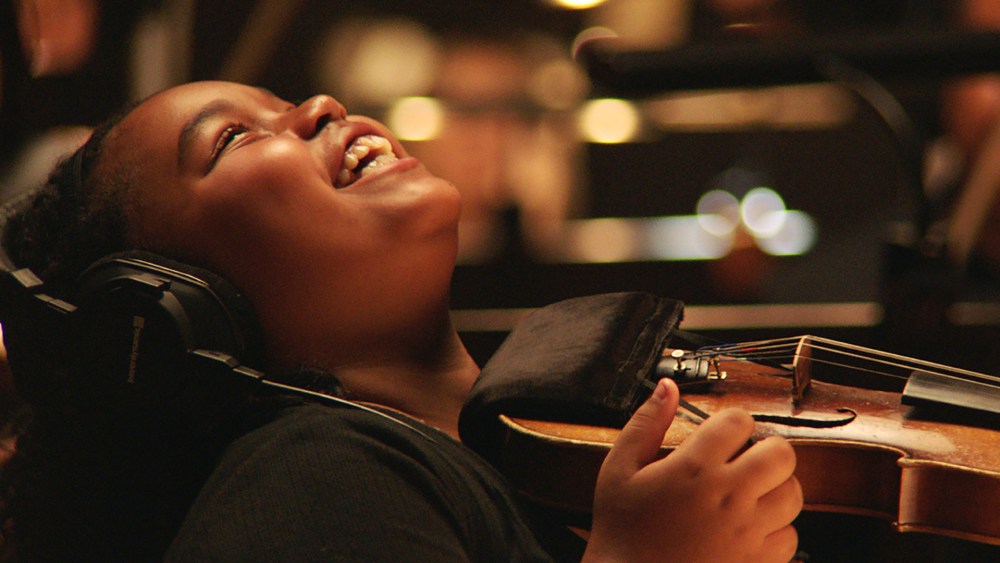‘2024 Oscar Nominated Short Films: Documentary’ Review
In a strange reversal of a longstanding trend with the Academy, this year’s documentary short ballot is almost entirely domestic (which is to say, films made by or about Americans), while the feature doc category — where subtitles aren’t so common — is entirely international. Judging by the overall quality of the films in the 141-minute “2024 Oscar Nominated Short Films: Documentary” lineup, that’s no sign of compromise. In fact, for Oscar completists, ShortsTV’s annual roundup is one of the most rewarding theatrical experiences audiences could hope for this year.
Director Sean Wang premiered his debut feature, “Dìdi,” at the Sundance film festival just four days before learning that his short, “Nǎi Nai and Wài Pó,” had been Oscar nominated. Both projects feature his paternal grandmother, octogenarian Chang Li Hua, who shares a house with his mother’s mother, 94-year-old Yi Yau Fuei (the title combines the two women’s Cantonese nicknames). At times, Wang’s delightful, slightly freeform portrait plays like a high-end home movie, as the young helmer observes his Taiwan-born elders, who sleep in the same bed and taunt one another about their farts. But there’s real artistry to the way he shapes the footage. Nǎi Nai and Wài Pó light up when their grandson’s around, flipping through old photos, sharing stories of their youth and reflecting on their remaining time. Wang honors these women by being silly rather than sentimental, demonstrating that a great documentary is sometimes merely a record of something that might have otherwise been lost.
Produced by The New Yorker, John Hoffman and Christine Turner’s “The Barber of Little Rock” believes in leading by example. The grassroots doc inspires at times, outrages at others — as when it touches on the history of redlining and other discriminatory lending practices — by profiling Arkansas community development advocate Arlo Washington. A self-made entrepreneur, this local hero runs a barber school designed to give struggling neighbors a trade with which they can start their own businesses. But that’s just the beginning of this Black man’s crusade against economic injustice. Recognizing that the American financial system remains highly inaccessible to his peers, Washington also co-founded a non-profit bank. The short strings together Oprah-worthy moments in which he writes grants or defers payments to those who need that extra boost, following the beneficiaries of such bespoke solutions long enough to witness their success. It’s the individual attention that makes Washington’s approach so effective, and the doc takes a similarly personal approach in outlining a workable alternative to institutionalized racism.
While Taiwan features far in the rearview mirror of the Bay Area-based grannies in “Nǎi Nai and Wài Pó,” filmmaker S. Leo Chiang wrestles with the country’s ongoing identity crisis in self-reflexive essay film “Island in Between.” The movie spends most of its time on Kinmen, an island just off the coast of China where Taiwanese forces (exiled from the mainland) once staged their resistance. Visiting Kinmen as a tourist today, Chiang recalls how his father did his military service there decades before, observing the Beishan Broadcasting Wall, a tower of speakers that blasted propaganda across the bay. That history helps to explain the ongoing tension between China and Taiwan, though the director questions the hand-me-down wisdom on the subject: He’s spent time in China and seems fascinated by the culture thriving there now. The question of Taiwanese autonomy is an issue of “sides,” which some experts predict could spark World War 3. Chiang is more ambivalent, laying out his three passports to illustrate how borders don’t define him.
Speaking of propaganda, MTV Documentary Films honcho Sheila Nevins’ “The ABCs of Book Banning” doesn’t pretend to be anything less. After more than a dozen years running HBO’s doc division, Nevins finally helms her first project, applying the tools of filmmakers she’s supported to a cause she feels passionately about: saving books from conservative critics, who’ve been extremely savvy about singling out offending lines in literature and getting those books removed from school libraries. Nevins turns these censors’ tactics back on themselves, equating them to Nazis (cue the book-burning footage) and “featuring the voices of those who haven’t been heard”: the children. The emotional short is sure to galvanize folks, as young people express their desire to learn about people different from themselves. Books don’t turn people gay, but they allow closeted kids to recognize themselves — and non-queer readers to develop empathy that threatens intolerant adults. That said, not all books are appropriate for kids, and the sometimes inelegant short lacks some much-needed nuance.
What a few of the nominees lack in polish, the final nominee, “The Last Repair Shop,” more than compensates for. Ingeniously conceived and gorgeously shot, Ben Proudfoot and Kris Bowers’ nearly-40-minute short (the upper limit the category allows) explores a Los Angeles Unified School District program to provide students with working instruments at no cost. The directors start with the kids, which feels fairly obvious. Their stroke of brilliance comes in profiling the handful of specialists who keep the instruments in working order. Through these artisans — Dana Atkinson, Duane Michaels, Laty Moreno and Steve Bagmanyan — the filmmakers reveal the incredible diversity that comprises L.A.: an LAUSD alum who took years to accept his own homosexuality, immigrants of Armenian and Mexican origin, and a fiddle player discovered by Elvis’ manager, Colonel Tom Parker. Like “ABCs,” but better, this micro-masterpiece celebrates how transformative it can be to put the right tools in kids’ hands. Watching them all play over the end credits is the perfect way to wrap this year’s stellar ensemble of Oscar-nominated shorts.

